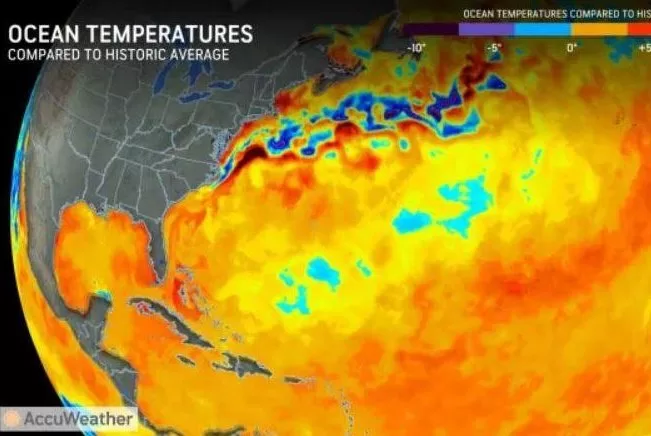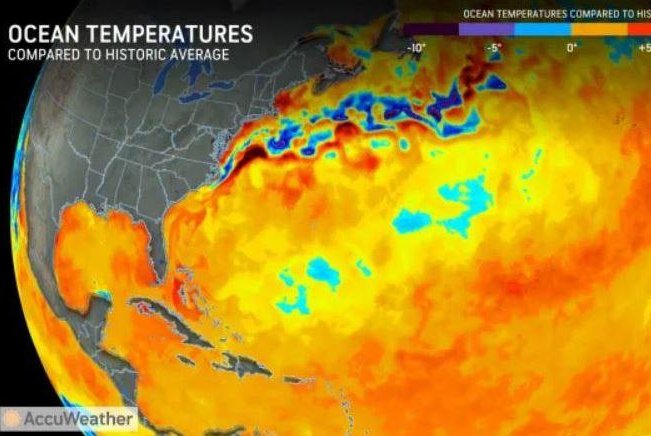1 of 2 | Accuweather.com
June 1 (UPI) — The 2024 Atlantic hurricane season, which began Saturday, is predicted to be one of the most active on record, with AccuWeather experts forecasting 20 to 25 named storms in 2024. With so many storms likely this year, a bevy of names will be used, including a few that have never been used before.
The National Hurricane Centerhas been naming tropical systems since 1953, using a rotating list to identify storms. If a tropical storm or hurricane causes extensive damage or significant loss of life, the name is retired.
There are 21 names on the list despite there being 26 letters in the alphabet, as Q, U, X, Y and Z are skipped. With a super-charged hurricane season in the forecast, it is possible that every name on the list is used in 2024 — and then some.
The Atlantic hurricane season ends Nov. 30.
Some of these names may sound familiar, as many are recycled every six years. The last time Alberto, Beryl, Chris, Debby, Ernesto, Gordon, Helene, Isaac, Joyce, Kirk, Leslie, Nadine and Oscar were used was during the 2018 Atlantic hurricane season. Francine and Milton are new names, replacing Florence and Michael, which were retired following the 2018 season.
Tropical systems that spin up in the eastern Pacific hurricane basin are also given names, but the NHC uses a different list to identify each storm.
If a tropical system develops over the central Pacific, it is given a name from a separate list comprised of traditional Hawaiian names.
What happens if we run out of hurricane names?
It is likely that forecasters may need more than 21 names before the season comes to a close.
In the past, the letters of the Greek alphabet were used as names, starting with Alpha. However, this rule was changed in 2021 following a historic hurricane season in 2020.
“The use of the Greek alphabet was not expected to be frequent enough to warrant any change in the existing naming procedure,” the WMO said on its website. “However, after the record-breaking 2020 season, the WMO Regional Association IV Hurricane Committee annual session in 2021 decided to end the use of the Greek alphabet and instead established two lists of supplemental tropical cyclone names, one for the Atlantic, one for the Pacific.”
The supplemental list of names is also in alphabetical order, starting with the name Adria if there are at least 22 named storms in the Atlantic this season.
Last hurricane season featured 19 named storms, but there were only four direct U.S. impacts. Hurricane Idalia was the storm of the year, which slammed into Florida as a powerful Category 3 hurricane in late August. Additionally, Tropical Storm Harold drenched southern Texas, and Tropical Storm Ophelia made landfall in North Carolina. Lee also swiped the New England coast as a tropical rainstorm before making landfall in Nova Scotia, Canada.
A volatile hurricane season is predicted to unfold this year over the Atlantic Ocean, Caribbean and Gulf of Mexico, with peak season churning out storms at a fast and furious pace.
Besides 21-25 named storms, predicted are 8-12 hurricanes, four to seven major hurricanes and four to six direct U.S. impacts. This is all above the 30-year historical average of 14 named storms, seven hurricanes, three major hurricanes and four direct U.S. impacts.
“The 2024 Atlantic hurricane season is forecast to feature well above the historical average number of tropical storms, hurricanes, major hurricanes and direct U.S. impacts,” AccuWeather Lead Hurricane Forecaster Alex DaSilva said. This echoes the early warning AccuWeather issued in late February about the potential for a surge in tropical activity.
Warm water is fuel for tropical systems, and there will be plenty of warm water for fledgling systems to tap into and strengthen.
“Sea-surface temperatures are well above historical average across much of the Atlantic basin, especially across the Gulf of Mexico, Caribbean and the Main Development Region [for hurricanes],” DaSilva explained.
Not only will this promote frequent development, but it will increase the potential for systems to undergo rapid intensification, a phenomenon that has occurred in recent years with historic hurricanes.

